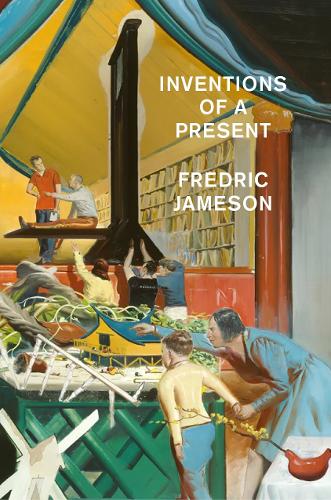
Inventions of a Present: The Novel in its Crisis of Globalization
(Hardback)
Publishing Details
Inventions of a Present: The Novel in its Crisis of Globalization
By (Author) Fredric Jameson
Verso Books
Verso Books
3rd September 2024
United Kingdom
Classifications
General
Non Fiction
Literary companions, book reviews and guides
Far-left political ideologies and movements
808.3
Physical Properties
Hardback
272
Width 153mm, Height 234mm, Spine 20mm
427g
Description
A novel is an act, an intervention, which, most often, the nave reader takes as a representation. The novel intervenes to modify or correct our conventional notions of a situation, and, in the best and most intense cases, to propose a wholly new idea of what constitutes an event or of the very experience of living. The most interesting contemporary novels are those which try - and sometimes succeed - in awakening our sense of a collectivity behind individual experience; opening up a relationship between the isolated subjectivity and class or community. But even if this happens (rarely!), one must go on to find traces of collective praxis hidden away within the mere awakening of a feeling of multitude. And, since it is in the sense of the nation and nationality that collectivity is most often expressed, it is urgent to disengage the possibilities of genuine action within these nationalisms. This sweeping collection of essays ranges from the elusive politicality of North American literature to the sometimes frozen narrative experiences of the eastern countries and the old Soviet Union; from East Germany to Japan, Latin America and the Nordic countries. Like any such voyage, it is an arbitrary movement across the world of historical situations which, however, seeks to dramatize their common kinship in late capitalism itself.
Reviews
Fredric Jameson is America's leading Marxist critic. A prodigiously energetic thinker whose writings sweep majestically from Sophocles to science fiction. -- Terry Eagleton
Jameson has long been the most alluring American literary theorist, the only one to match the French in style and depth. -- Angela Woodward * Los Angeles Review of Books *
Not often in American writing since Henry James can there have been a mind displaying at once such tentativeness and force. The best of Jameson's work has felt mind-blowing in the way of LSD or mushrooms. -- Benjamin Kunkel * London Review of Books *
The most muscular of writers. * Times Literary Supplement *
Probably the most important cultural critic writing in English today. It can truly be said that nothing cultural is alien to him. -- Colin MacCabe
Jameson is probably the finest cultural critic in the world. There seems to be almost nothing he hasn't read, apart perhaps from the odd manual on pig-farming. -- Terry Eagleton * London Review of Books *
The publications of Jameson's articles and books are intellectual events, and he has that unique power to change the terms of the discussion. Theory, for Jameson, is not a way to distance himself from the text. Rather, it is theory that makes close textual interpretation possible, it is a mode of intellectual engagement that allows us to think about the dialectical relationship between the social, political and economic system and the text. * Times Literary Supplement *
No literary scholar today can match Jameson's versatility, encyclopaedic erudition, imaginative brio or prodigious intellectual energy. In an age when literary criticism, like so much else, has suffered something of a downturn, with forlornly few outstanding figures in the field, Jameson looms like a holdover from a grander cultural epoch altogether, a refugee from the era of Shklovsky and Auerbach, Jakobson and Barthes, who is nonetheless absolutely contemporary. -- Terry Eagleton * New Left Review *
Jameson thinks dialectically in the strong sense, in the way we are all supposed to think but almost no one does. -- Michael Wood, * London Review of Books *
Exploding like so many magnesium flares in the night sky, Fredric Jameson's writings have lit up the shrouded landscape of the postmodern. -- Perry Anderson
Author Bio
Fredric Jameson is Distinguished Professor of Comparative Literature at Duke University. The author of numerous books, he has over the last three decades developed a richly nuanced vision of Western culture's relation to political economy. He was a recipient of the 2008 Holberg International Memorial Prize. He is the author of many books, including Postmodernism, Or, The Cultural Logic of Late Capitalism, The Cultural Turn, A Singular Modernity, The Modernist Papers, Archaeologies of the Future, Brecht and Method, Ideologies of Theory, Valences of the Dialectic, The Hegel Variations and Representing Capital.
